blog
posted 14 June 2024
The Kids are Yearning for Dank Memes
It had been on the cards for some time: the vibe is shifting again, and it is only a question of time until dank memes and mid-2010s post-irony will be on everyone's feed again. It all started with Allison P. Davis' observation of Sean Monahan aka 8Ball's Substack. In June 2021, Monahan claimed to foresee the upcoming vibe shift of the early 2020s through a meme.
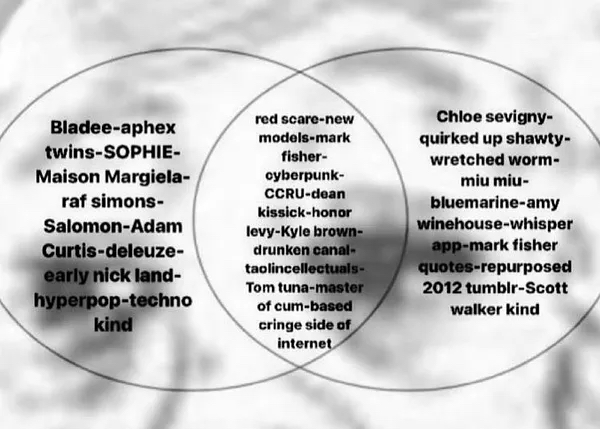
In 2021, the Venn diagram template might have read like an accumulation of random words and names only the chronically online could decipher, but by 2024, these blurbs are so udneniably mainstream that it's clear that Monahan was right. In fact, he claims to have survived at least three vibe shifts:
- Hipster/Indie Music (ca. 2003-2009)
- Post-Internet/Techno Revival (ca. 2010-2016)
- Hypebeast/Woke (ca. 2016-2020)
- [ABOVE MEME] (ca. 2021-????)
Regardless of what the era starting in 2021 is called, now, the meme culture seems to be changing again, and it could be one of the first meme-centric renaissances: the second coming of dank memes.
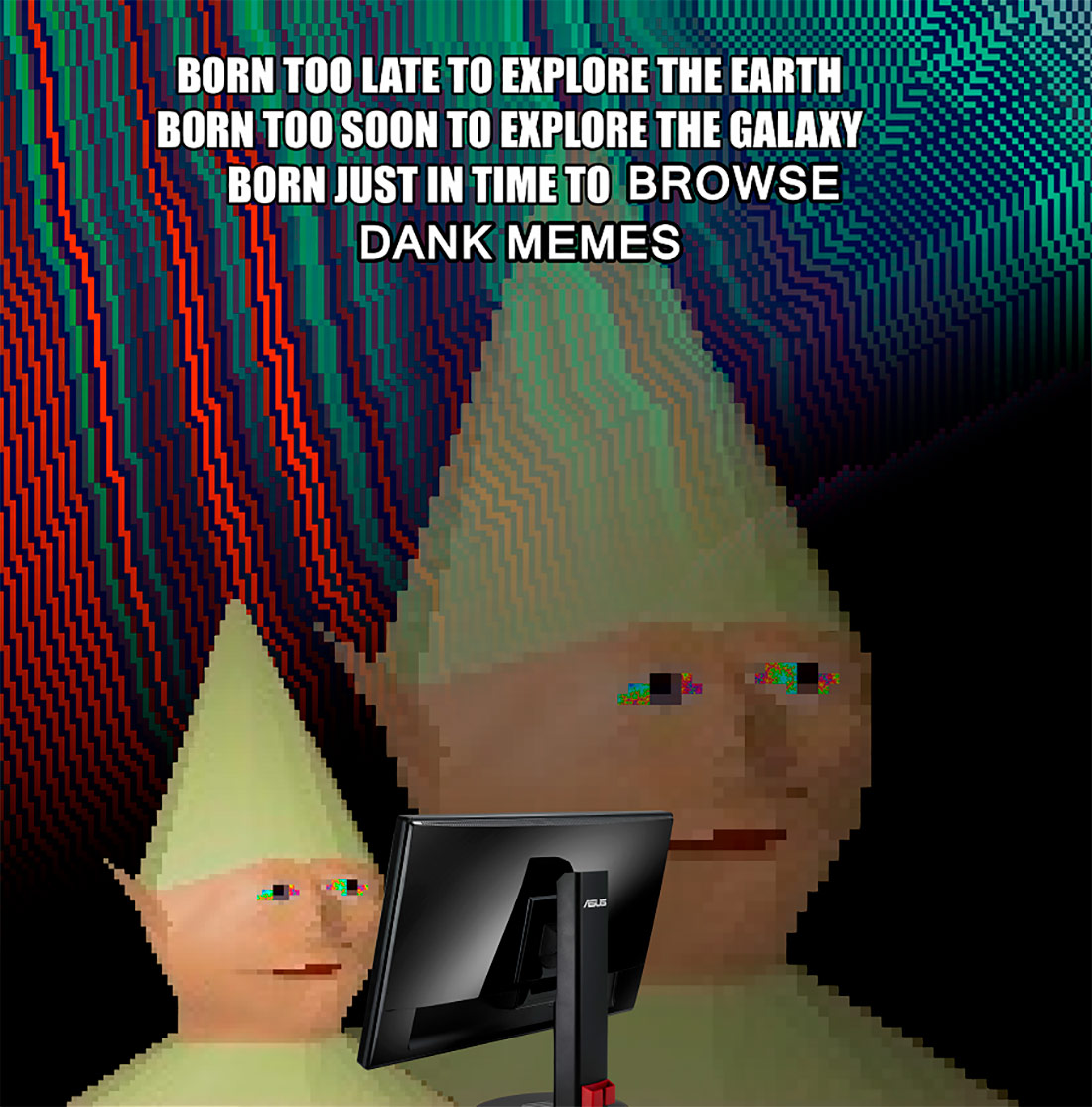
Dank memes emerged some time around 2013-2014 during a time when the classic era of memes (Rage comics, image macros, YouTube Poop, you name it) not only became commodified in the mainstream, but the whole logic of memeing was hijacked by marketing companies all over the internet. Digital cultures had to shift away from the commercial internet threatening to render everything unfunny it gets a hold of. The subreddit r/dankmemes was founded on January 3, 2014, and soon became a reliable supplier of the dankest shitposts on the internet for the upcoming years. But even the memes posted there adjusted to the vibe shift and are not necessarily classically dank anymore. But then I observed something interesting (perhaps related to Slim Shady's comeback?): a streak of Dat Boi memes on @worstigaccount.
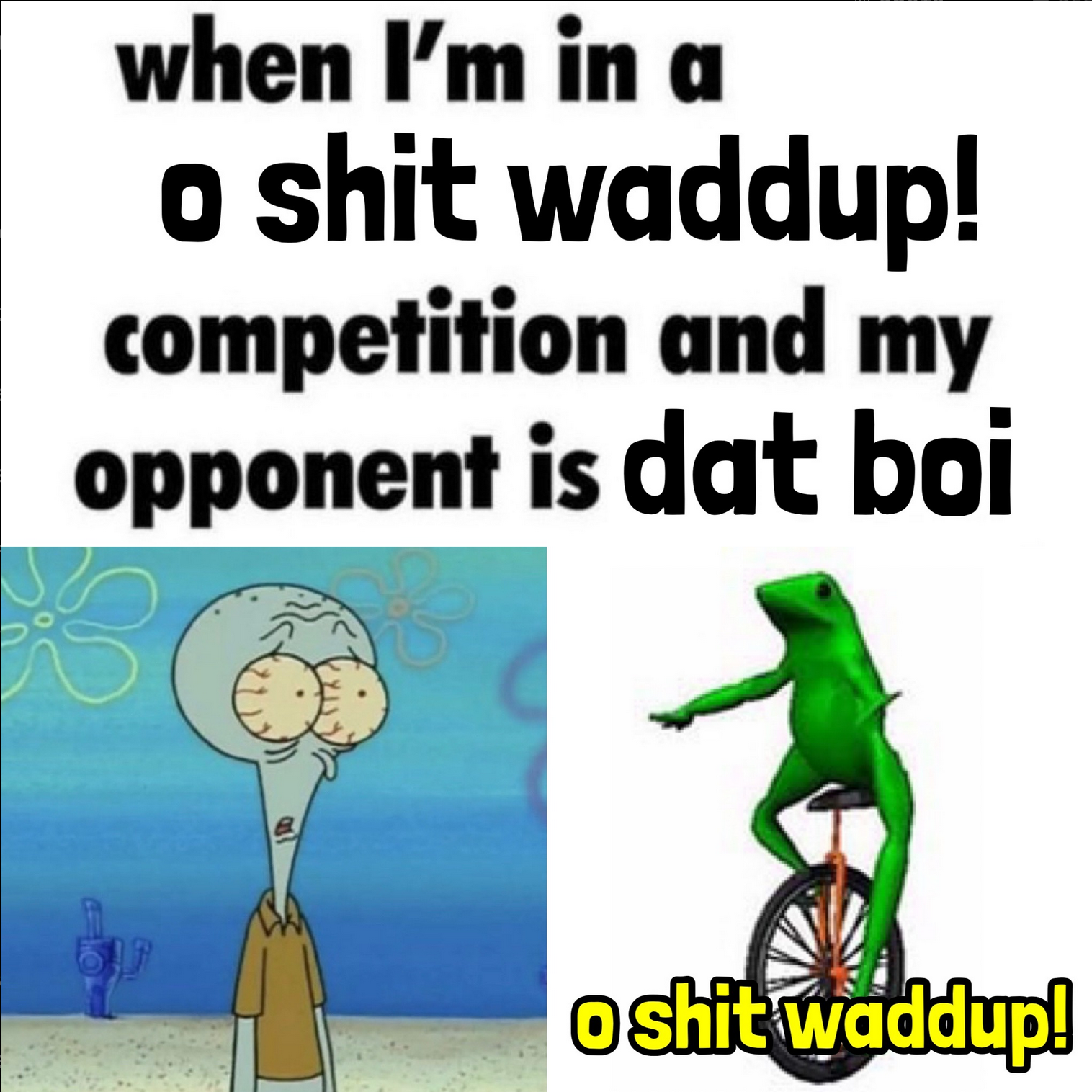
Dat Boi, an icon of dank memes, seems to be making a (forced?) comeback, and honestly, I'm totally here for it. The frog on a unicycle appeared for the first time on Facebook in 2016 with the snowclone: here comes dat boi!! o shit waddup! Since then, dat boi has been declared dead and reborn again and again. The frog's aura of silliness and coolness is also reminiscent of the 2016 nostalgia or the very last time when everything seemed to have made sense (at least until the orange muppet was elected into office). Now, 8 years later, it seems that the world won't stop burning, and the carefree memeing of Harambe seems like a lifetime ago. Therefore, I'm calling the renaissance of dank memes and pre-cringe millennial humour: I want to see frog memes. I want to see Thug Life edits. I want to see emojipastas spamming comment sections. I want to be earraped by MLG montage parodies. I want to see deep fried filters on everything. Let the vibe shift again!
posted 5 June 2024
Post-Irony and Deliberate Senselessness
When studying memes of the mid-2010s, one of the most intriguing aspects is the evolution of meme humor: within a short time span of a couple of years, memes transitioned from straightforward punchlines to intricate layers of irony, rendering them challenging for those outside the in-group to decipher. Irony is used as a means to disrupt the normification and commercialization of internet memes. One early example, uploaded to Reddit in December 2016, is a two-panel meme labelled "types of memes I used to like" on the top panel and "type of memes I like now" on the bottom panel.
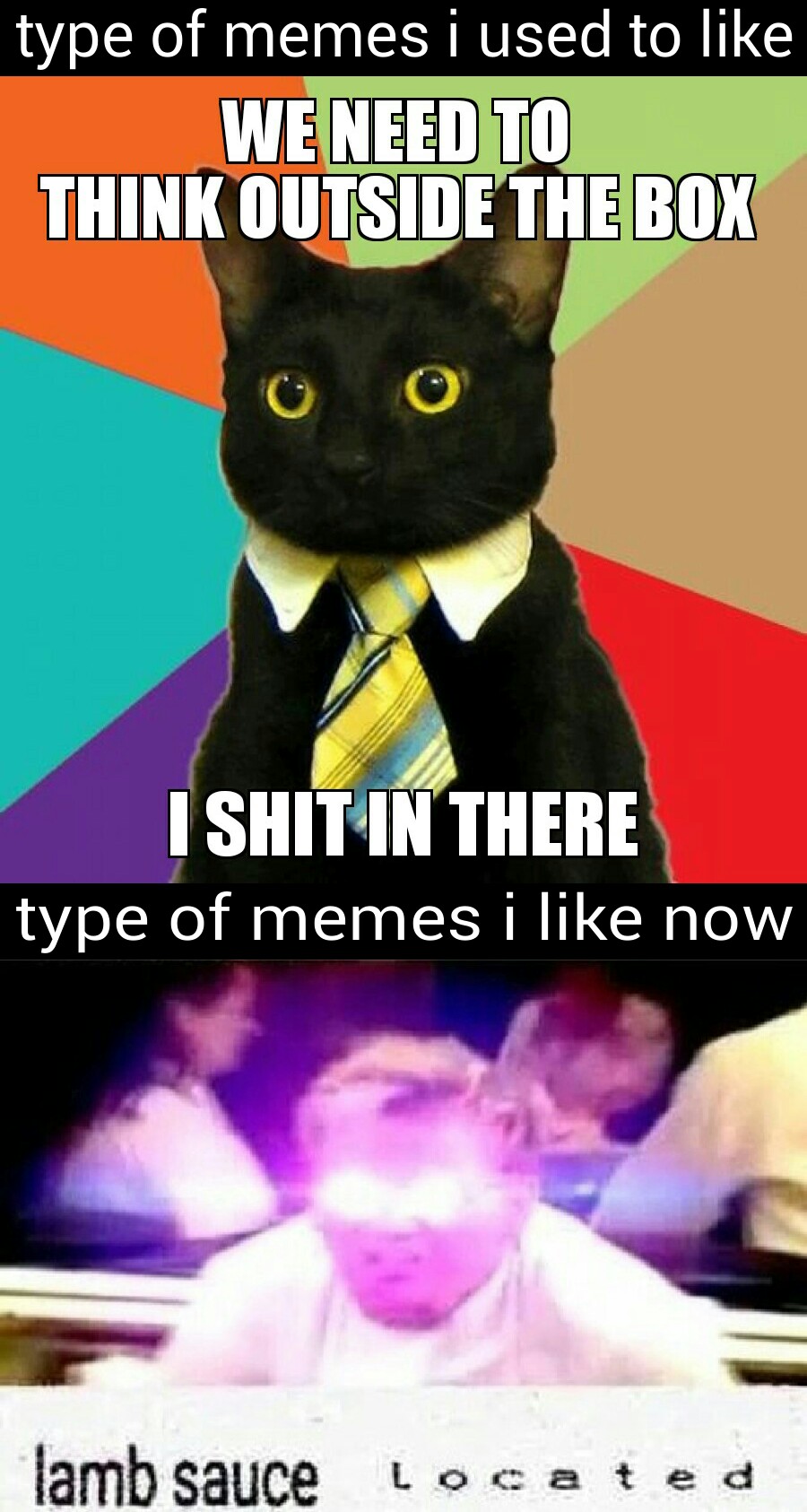
The meme itself claims that memes have changed since their early days in terms of humor. Both memes are related through their format: they are image macros featuring a poor image, a well-situated caption, and the potential to produce various mutations thereof. Their difference is more apparent in their wit: while the Business Cat's caption is a classic and straight-forward joke with a punchline, playing on the double entendre of the startup-speak snowclone 'we need to think outside the box' and the cat's litter box, the meme below is only understandable to those having some vague idea about its origin, in most cases, because they have experienced the development themselves. But instead of a paraphrased joke, there are only three words in the caption, one of them typed in a spaced-out style for, you know, dramatic effect. The words "lamb sauce l o c a t e d" do not refer to anything else than Ramsey either, so knowledge about their origin is the key to this memetic door: It is a still from a popular 2006 episode of Hell's Kitchen, Gordon Ramsey's reality cooking show that features many of his iconic outbreaks. In the scene depicted, he is seen shouting multiple times "Where is the lamb sauce?" at the contestants of the show while entering rage mode. The scene had also been edited multiple times in YouTube Poop videos before, always highlighting the caricatural facial expression made by Ramsey while frantically searching for the lamb sauce that seems to become even more pixelated and cartoonish over the course of data compression. The photoshopped detail of glowing or laser eyes further intensifies Ramsey's emotional outburst.
On the internet, irony inevitably leads to misunderstandings as it is not verifiable who is ironic and who is not as well as who is using irony as a smokescreen to cause trouble. This uncertainty is exactly what ironic memes are taking advantage of: Baiting others with sardonic comments and replies while playing down one's own engagement in irony has become a paradigm of online communication as present in every comment section. While classic memes were, at least to a certain degree, comprehensible and accessible in the sense that you could understand them if you knew how to read them, ironic memes reference the shared experiences of an in-group you either belong to or not. More broadly, the social aspects of creating and sharing memes as a way of materialising ephemeral online phenomena have always been the most vital part of memes. In ironic memes, however, they are deliberately used to draw lines between different communities-a primary aspect of memeing in general but of ironic memes in particular; they form a new boundary between the girls that get them and the girls that don't.
In the trolling tradition, the highly ironic humor of these memes is mainly directed against normies and mainstream users. This shaped the humor of late Millennials and Gen Z as is already apparent in the trajectory from YouTube Poop videos to MLG montage parodies. In 2016, meme elitism becomes a part of the transgressive attitudes of many digital communities. This development needs to be situated as a reaction to the breakthrough of image macros as classic meme templates in 2012 and the commodification of meme characters and even snowclones. The change in humor from easy-to-understand punchlines to multiple layers of irony, making it almost impossible for people from the out-group to follow along, is situated as a way of subverting the normification and commodification of memes. This was performed as a hijacking of memes through a complete break-up of content and formal structure as well as the merging of increasingly incoherent agents into memes. In the case of the meme described above, these are references to a historical meme canon, Gordon Ramsey's iconic character, the series' scene already mutated by montage parodies, and the spaced-out caption. All these agents bear meaning themselves, but have become fluid to such an extent that they can be charged with another meaning at any given point.
posted 2 June 2024
The Memeification of Discourse
"The internet (or rather social media) has killed differentiated discourse." Probably a lot of users can agree on this observation: No matter what hyped-up trend or political nightmare is discussed online, we can usually see how two sides to the story-one that is pro and one that is anti. Think about the 2016 US Presidential election, Covid-19 anti-vaxxers vs. scientists, pro-choice and pro-life activism as well as recent wars and invasions.
While there are many many arguments presented on different perspectives in each of these discourses (as well as their intersections), on the internet, we always seem to fall into a binary opposition of either/or: You may only be pro-vaxx or anti-vaxx, pro-X or pro-Y, and so on, no inbetween. Of course, some of the arguments make more sense and some less (tbh you can only get vaccinated or not). Let me put that aside for now and only focus on the binary rhetoric that underlies these discussions. Even though (right-wing) political populism is booming in the west and beyond, the way things are discussed on the internet is an insult to the history of rhetoric. No, I don't mean that only dialectics is an adequate method of debate - on the contrary, that is the philosophically highbrow forerunner of binary internet rhetoric. Between all the craze about positioning and canceling in all directions, it is wild that the binarity of discussions does not arise from their political content, but is underscored by the very platforms of social media. I am saying that western philosophical traditions pre-deconstructionism gave way to today's discussion culture. In fact, the first online discussion in which the either/or logic is revealed is the discourse surrounding The Dress in 2015, which was mainly conducted on Twitter. A discussion broke out around the photo of a bodycon mini dress taken under poor lighting conditions as to whether it was a white dress with gold ornaments or a blue dress with a black border. Even if OP (now convicted of domestic violence btw) had actually asked for help, he was confronted with little other than the self-professed experts in color matching: a weeks-long argument broke out between the white/gold advocates and the blue/black team, which was only answered by the involvement of a lot of thinkpieces and even more Reddit experts (the dress was blue and black, duh).
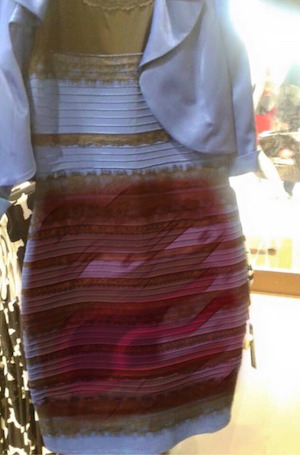
What I find so fascinating is that political discourse is not so divisive that we can only discuss it in strict black and white logic, but that we simply find this rhetoric suitable for discussing complex, entangled problems. While some things are surprisingly simple to argue (e.g. the killing of civilians is unacceptable under any circumstances), especially historical circumstances (e.g. who attacked whom first?) are often only resolvable in context, if at all. Due to media-specific reasons of platforms that are based on the principles of virality and the commodification of attention, the possibilities for nuanced discourse are becoming increasingly remote. This becomes especially problematic when positions harden and users no longer want to enter dialogue with the 'opposite' position.
It may seem trivial that this specific form of rhetoric began in the mid-2010s with online debates like The Dress or If a Dog Wore Pants (as well as many more bait debates™). In fact, these discussions were just foreshadowing of what we now do with real problems, you know, the kind of problems threatening thousands and thousands of people with death, deportation, and the consequences of war. The legacy of the ongoing memeification of discourse, further driven to the forefront by party politics and sensationalist media agencies, will in turn shape the discussion culture of tomorrow.

posted 31 May 2024
The Meme Singularity
Is the singularity really near? We all know that memes have always been weird, ironic and brainrotten as soon as they appeared on the internet. From the creation of copypastas in the 90s to large-scale attempts at trolling in the 2000s to the global mourning of Harambe (rest in power) in 2016, memes have not suddenly become silly with the appearance of Skibidi Toilet and other Gen Alpha memes over the course of the last year. But the recent increase in brainrot content makes me wonder how the ongoing post-truth crisis, fuelled by automatic censorship across all platforms and AI generated advice aka fake news, is connected to the content of memes.
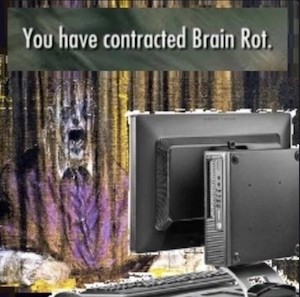
While brainrot content might just be another name for shitposting or an evolution of schizoposting, its references seem so out of context that this lack of connections is precisely what makes it funny. Take the hype around Donghua Jinlong memes, for example: a few months ago, my TikTok For You feed (and later my Instagram Explore page) was flooded with all kinds of videos on the industrial-grade glycine produced by the Chinese factory Donghua Jinlong. Besides their quite obviously falsely adressed ads of their products, I saw videos of users using maps and satellite material to draw a whole trip to the Donghua Jinlong factory, Donghua Jinlong makeup tutorials, a video reading out loud 'Industrial Grade Glyine by Donghua Jinlong' in the style of Gregorian chants, and many more remixes on the theme of major clients-style advrtising of industrial chemicals and materials.
While there is a whole Marxist critique of the labour mechanics of factory working and the corresponding repetition and productivity of Donghua Jinlong videos waiting to be done, (shoutout to Misi!) it is interesting how meme dynamics and capitalist ideals seem to converge in this form of brainrot content. I think this is because we are on the verge of the definitive annihiliation of differences between humour and truth, rendering the search for 'original' traces of one or the other completely redundant. In fact, we are alreading living in this new environment where saying things that are true on the internet is banned or censored while fake or simply false information is taken for granted. In this regard, truth becomes situated and temporary, fully living behind the eurocentric fantasies of universal truth. But don't mistake that for a complete lack of truth: after all, I am here writing this, you are reading this, and Donghua Jinlong is still producing high-quality glycine. So there must be some kind of truth, even though it has nothing to do with universality or righteousness.
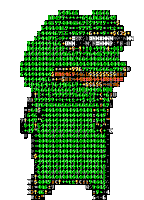
posted 31 May 2024
Cat Tax
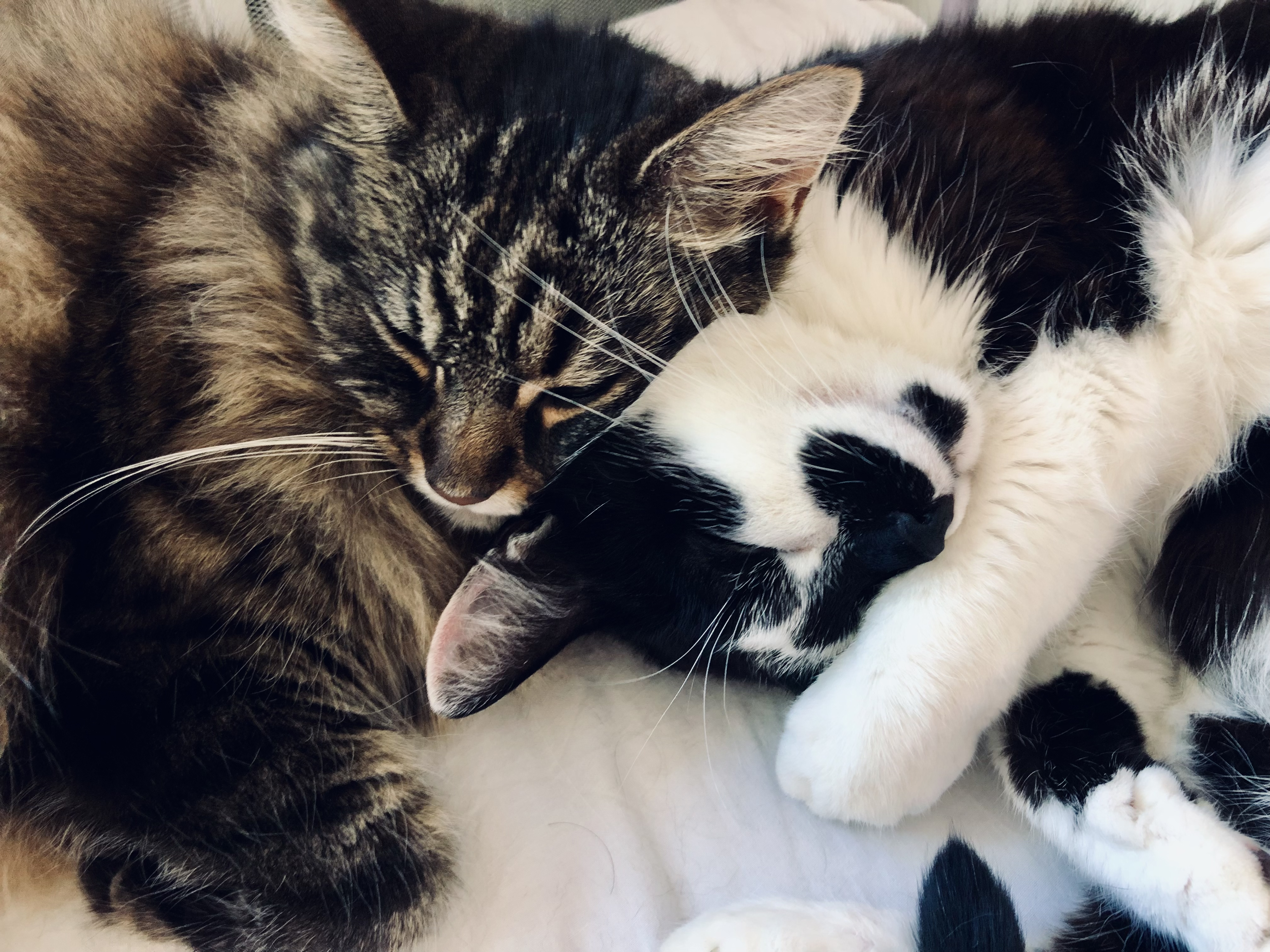
Hi everyone! This is my first blog post so I'll start right away with the cat tax. Meet Coco, the tuxedo cat, and Freya, a short hair/Maine Coon mix. Coco is turning 8 years old in September while Freya recently had her 7th birthday in April. I am so lucky to live with them as they're super cuddly and very funny cats. They're both indoor cats as I'm living in a city but I'd love to bring them to the park sometime.

